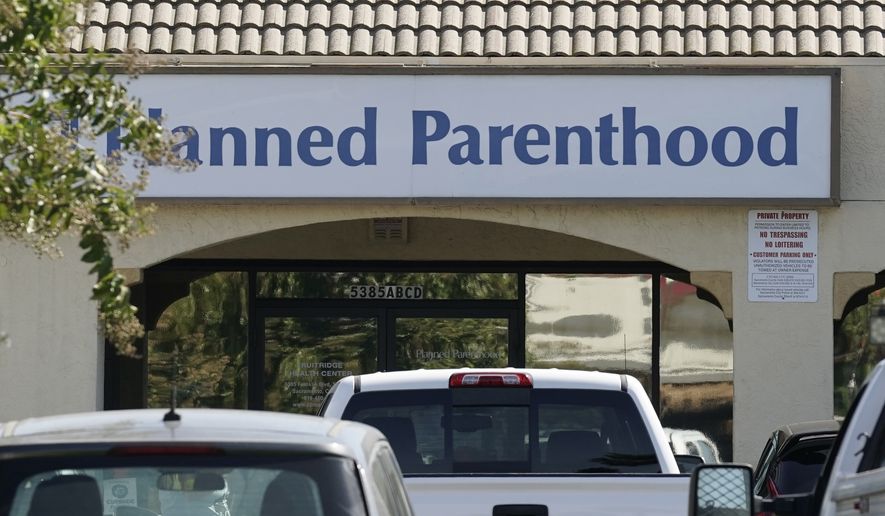Planned Parenthood organizations were rightly able to collect pandemic business loans, an inspector general concluded in a new report Monday that rebuts the claims of congressional Republicans.
Investigators looked specifically at Planned Parenthood of Illinois as an example and found that it had 341 employees, or well within the 500-employee limit laid out in the law governing the pandemic-era Paycheck Protection Program.
The Small Business Administration’s inspector general also looked at the chapter’s relationship with national Planned Parenthood and found no affiliation that would have changed the results.
“We determined that the Planned Parenthood organization met PPP loan eligibility requirements,” Hannibal “Mike” Ware, the inspector general, concluded.
But chapters of other large nonprofit organizations, such as Goodwill and the YMCA, did “erroneously” get pandemic loans because they were too large to qualify under the original rules, the investigation found.
The Goodwill chapter, Goodwill of Southwestern Pennsylvania, eventually became eligible after employee size limits were redefined. It collected more than $6 million in now-forgiven loans.
But YMCA of the Rockies, which got $3.5 million, had too many employees at the time it applied for a loan and when it sought — and won — forgiveness, the audit concluded.
All told, the probe identified 179 Paycheck Protection Program loans to nonprofit groups that should have been flagged as potentially erroneous.
Nonprofit organizations’ access to pandemic loans was heatedly debated in 2020, with Planned Parenthood taking fire from conservatives who objected to the move.
The Trump administration at one point had ruled that because of the structure of the organization and the relationship between local affiliates and the national group, all the employees should be counted together, putting the chapters well over the limit for PPP loans.
Indeed, Planned Parenthood’s national group appeared to agree, warning that the March 2020 law that created the PPP seemed aimed at denying the organization’s chapters any loans.
But local Planned Parenthood outfits applied — and won — loans anyway.
Mr. Ware said after looking at the structure, he didn’t see signs of national control over local organizations.
The PPP was part of Congress’s attempt to bolster the economy amid the pandemic’s early shutdowns.
Smaller firms were allowed to apply for government-backed bank loans and then apply for forgiveness as long as they met the criteria and used the money for allowed purposes.
Banks were told to accept firms’ self-attestations about things like the number of employees.
All 179 organizations the inspector general flagged Monday were too large to qualify, Mr. Ware said.
The YMCA chapter investigators looked at had 745 employees.
The SBA, in an official response to the report, said it would go back and review 27 of the loans Mr. Ware flagged.
The agency promised specifically to review the $3.5 million YMCA loan, though it said the probe won’t conclude until January.
For more information, visit The Washington Times COVID-19 resource page.
• Stephen Dinan can be reached at sdinan@washingtontimes.com.




Please read our comment policy before commenting.